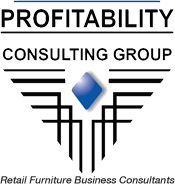 Surviving a disaster, living through a pandemic, the loss of key personnel or selling your business…all of these things can wreak havoc on your bottom line! Doing business without a succession plan can invite disruption, uncertainty and conflict, and endangers future competitiveness.
Surviving a disaster, living through a pandemic, the loss of key personnel or selling your business…all of these things can wreak havoc on your bottom line! Doing business without a succession plan can invite disruption, uncertainty and conflict, and endangers future competitiveness.
Disaster-proof your business. The sooner a succession plan begins, the quicker your business is shored up for the long haul. Think of it as business continuity insurance that requires grooming employees. Succession planning may seem time consuming, but you don’t have to go it alone! Working with our team brings a wealth of knowledge and experience. We can have you and your team working together building a successful plan tailored to your specific needs in no time.
There’s an old saying that explains the inherent benefits of succession planning best, “If you fail to plan, you plan to fail.” For companies that are family-owned or controlled, the issue of succession also introduces deeply emotional personal issues and may widen the circle of stakeholders to include non-employee family members. Succession planning results in future-proofing your company.
A successful succession plan should include the following key elements:
- An understanding of strategy and structure. In order for succession planning to be effective, know what your organization’s goals and interests are.
- An evaluation of employee skills.
- A training and development plan.
- Recognition and advancement opportunities.
When establishing goals and objectives:
- Identify the need for a succession plan.
- Develop the vision, goals, and objectives of the business.
- Determine the importance of family involvement in leadership and ownership of the company.
- Establish personal retirement goals and cash flow needs.
- Identify family members’ goals.
- Determine the need for an outside facilitator.
- Establish a team of professional advisors (attorney, CPA, bankers, financial advisors, insurance specialist).
 When outlining a specific decision-making process, involve family members, establish a method for dispute resolution, document the succession plan in writing, and communicate your succession plan to all family/stakeholders. Individuals are vital in the business succession plan. Identify your successors, including both managers of the company and owners of the business. Identify active and non-active roles for all family members. Identify required training for the successor(s). Provide necessary training to the successor(s) to ensure the future of the business. If the retiring owner will remain involved in the business, make sure to define that person’s role. Also be sure to provide counsel and support to successors.
When outlining a specific decision-making process, involve family members, establish a method for dispute resolution, document the succession plan in writing, and communicate your succession plan to all family/stakeholders. Individuals are vital in the business succession plan. Identify your successors, including both managers of the company and owners of the business. Identify active and non-active roles for all family members. Identify required training for the successor(s). Provide necessary training to the successor(s) to ensure the future of the business. If the retiring owner will remain involved in the business, make sure to define that person’s role. Also be sure to provide counsel and support to successors.
We will continue this conversation and discuss the next steps in our upcoming blog.
In the meantime, contact us for a free virtual consultation to learn which steps are next to protect your business today! We can help with succession planning for your family business, succession planning for leadership and non-leadership roles, succession planning for retail management, and business continuity plans. Call us at 404-432-2137 or email us!





